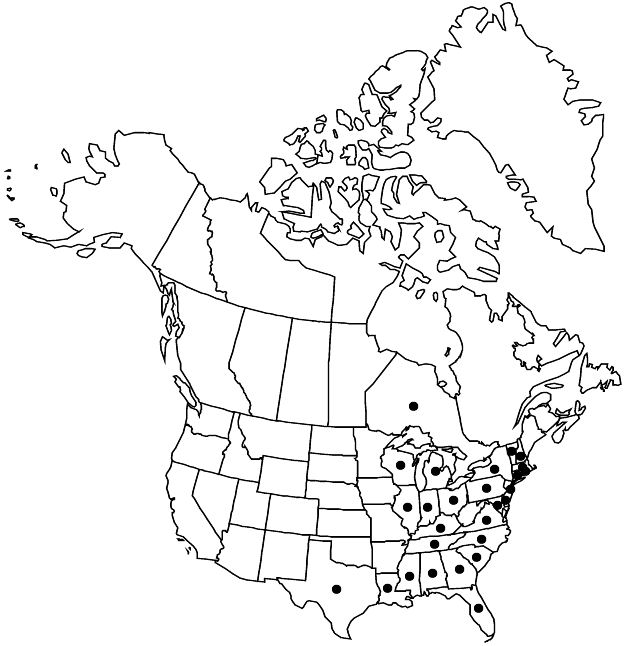Lechea minor
Sp. Pl. 1: 90. 1753.
Herbs, biennial or perennial. Stems: basal produced; flowering erect, 20–50 cm, sparsely sericeous. Leaves of flowering-stems whorled or opposite; blade elliptic to lanceolate, 8–15 × 4–7 mm, apex acute, abaxial surface pilose on midvein and margins, adaxial sparsely pilose or glabrous. Pedicels 1 per axil, 0.5–2 mm. Flowers: calyx 1.6–2 mm, outer sepals longer than inner. Capsules ellipsoid to ellipsoid-ovoid, 1.5–2 × 1–1.5 mm, ± equaling calyx. Seeds 2–3.
Phenology: Flowering summer; fruiting late summer–fall.
Habitat: Dry sandy or gravelly soil of pine-oak woodlands, savannas, sandhills, disturbed sites
Elevation: 10–600 m
Distribution

Ont., Ala., Conn., Del., Fla., Ga., Ill., Ind., Ky., La., Md., Mass., Mich., Miss., N.H., N.J., N.Y., N.C., Ohio, Pa., R.I., S.C., Tenn., Tex., Vt., Va., Wis.
Discussion
Lechea minor may have been extirpated from the Canadian portion of its range.
Selected References
None.
Lower Taxa
"dm" is not declared as a valid unit of measurement for this property.